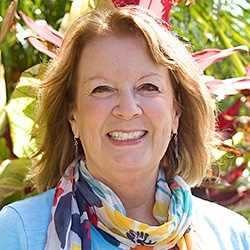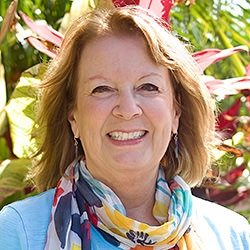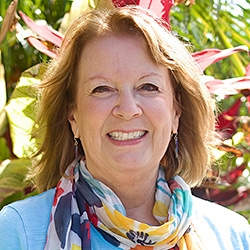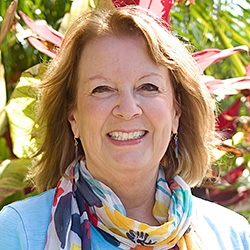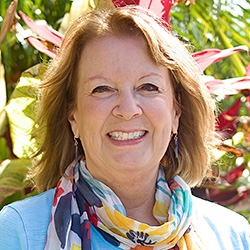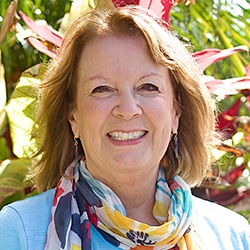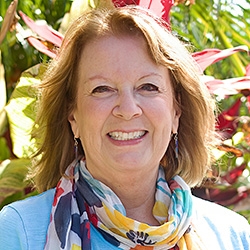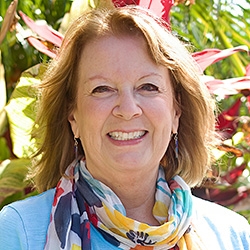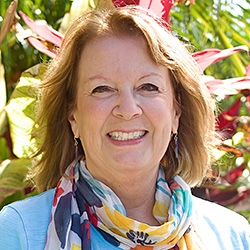

Search Results: consciousness
-
Do you sometimes feel overwhelmed – or locked into passivity? This course offers you a way out. Learn to change the way you perceive leadership, and you’ll help yourself respond more powerfully and proactively every day of your life – wherever you are – and whomever you’re with!
-
Trainer Tip: Thinking someone is bad, wrong, or evil can make it more difficult to connect with them. If we focus on this kind of thinking, we stay in the problem or conflict. The minute we step out of judgement and listen for the needs underlying their actions, we begin working for the solution. Put your focus in the direction of the result you want. Read on for an example.
-
Trainer Tip: We have four choices of how to respond to someone, even when they say things that are hard to hear. We can blame the speaker, blame ourselves, we can self empathize by acknowledging our feelings and needs, or we can empathize with the other person's feelings and needs. Be aware of these options and consciously make your choice based on the needs you want to meet.
-
Read how an American Buddhist NVC teacher with Jewish roots reflects on how any dehumanization in the Israel-Hamas conflict can be used to justify all kinds of violence that can escalate for generations. With acknowledgment of the complexities, his desire is for us to bring in respect, dignity and peace -- for both Israelis and Palestinians. He emphasizes compassionate advocacy of all humanity amid the ongoing crisis.
-
Hello,
I’m Iris Bawidamann. When Mary reached out to me asking if I’d write this letter, I sat for some time meditating on what is alive for me and what I want to share with you… This is what surfaced for me… Fear sits with me—on my shoulders, in my chest. A familiar presence I consciously keep in check so it doesn’t take over. Watching global politics, conflicts, and rising polarization, I often feel overwhelmed. The world is shifting.
-
- Learn how every decision we make perpetuates the status quo or brings us closer to the vision of a world that works for all
- Find out about our big brain capacity to integrate needs, impacts, and resources to make decisions that work for everyone
- Understand why power differences interfere with collaborative decisions and what can be done about it
- Discover tools that support collaboration in larger groups and organizations— even across power differences!
-
Mindfulness is paying attention in a balanced and nonjudgmental way. To practice mindfulness is to uncover our own biases, revealing we less neutral and objective than we think. This takes great humility. Each time we become aware of our own unconscious biases and blind spots, our world expands. Read on for more about practices to help us see, and transform, our own biases.
-
Reactivity is the misperception of threat coupled with lack of access to compassion and wisdom. Sensitivity is an ability to deeply perceive data, plus consciously attend to and attune to data, as it comes through the five senses. It can be a gift. If you lack the skill to care for any of your sensitivity-overwhelm by setting boundaries, you may develop reactive habits, like suddenly withdrawing or lashing out in order to get relief.
-
Join Elia Lowe-Charde as she shares a story that beautifully illustrates how boundaries are akin to consciously directing our precious energy. She artfully expands upon this concept by highlighting that life-serving boundaries embody the wisdom of discernment.
-
With worthlessness comes the idea of not belonging or not being worthy of belonging. In this context, belonging is more than an identity with a particular group. It is the sort of belonging that enables you to get other fundamental needs met, including safety, support, nourishment, and love. Unconscious attempts win worthiness and belonging often effectively blocks the very thing its pursuing. Read on for more.
-
Join CNVC Certified Trainer Arnina Kashtan as explores interdependence, autonomy, valuing self and others, and power-sharing in your relationships. Free yourself to honor your longing for community, belonging, and love.
-
Trainer Tip: Mary shares an experience about accepting responsibility for her actions and how that lead her to greater choice and freedom.
-
Trainer Tip: Find ways to celebrate each day and enrich your life.
-
Trainer Tip: There are many ways to meet a need. Open to new possibilities.
-
When we don't like what someone is saying to us, sometimes people encourage us to hear their needs, and "not take it personally" -- and we're inclined to agree. Could "not taking it personally" close our hearts and awareness to others, life and ourselves? Rachelle Lamb invites us to take a closer look at what it's like when we attend to the situation from our hearts, and skillfully reflect upon our actions with tenderness.
-
Trainer Tip: Find your deepest need. Then notice when you do things, or have done things, that keep you from meeting your most important need. And then take conscious action that is in alignment with the need you want to meet.
-
Trainer tip: Whenever we judge someone else in any way, we create a barrier and distance between us and the other person. Instead, consider shifting from judging other people to awareness of how their behavior affects your feelings and needs. This can make a profound difference in your ability to live peacefully. Read on for more.
-
- Start here to discover how Nonviolent Communication (NVC) will enrich and deepen all your relationships.
- You'll love this practical and enlightening approach to empathic listening and effective self-expression.
- Learn on your schedule with self-paced learning modules in this 30-day program.
-
Trainer tip: From the NVC perspective, everything someone says or does is either a “please” or a “thank you". In our culture, saying “thank you” usually involves an appreciation in the form of judgment or evaluation. Remember, whether we judge someone as good or bad, judgments and evaluations can create disconnect or tension. Instead, notice how their actions have enriched life, and what feelings it stimulated.
-
Trainer tip: In every interaction, we have a choice of responding in one of these four ways: judge/blame self, Judge/blame others, empathize with self, and/or empathize with others. The goal is to make a conscious choice about our response. Notice the choices you have when you receive someone’s communication today.

Quick Links
Subscription Preferences
Stay In Touch!
Looking for ways to keep up with NVC Academy news, get special offers, free resources, or words of inspiration? Here are five ways to stay engaged:


